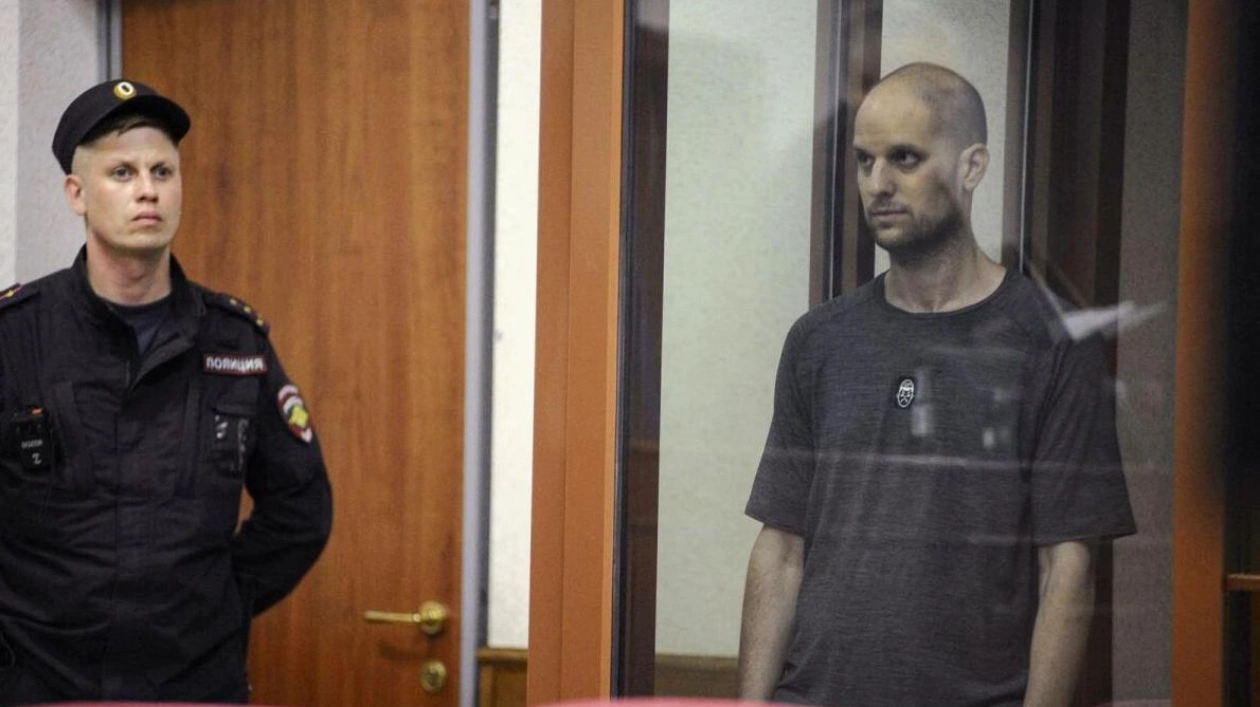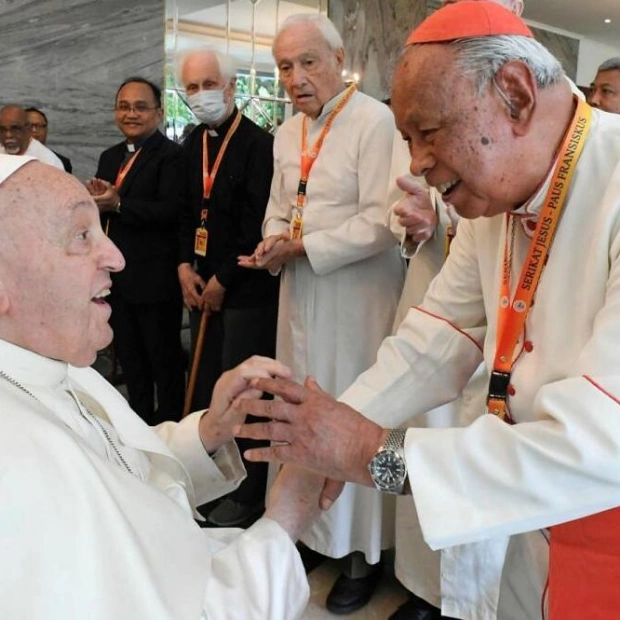Indications of a significant prisoner exchange involving Russia and Belarus on one side, and the United States, Germany, and Slovenia on the other, increased on Thursday, although there was no official confirmation of what could be the largest swap since the Cold War. Fox News reported that jailed Wall Street Journal reporter Evan Gershkovich was expected to return to the United States as part of a prisoner exchange, possibly later on Thursday. Flight tracking site Flightradar24 showed that a special Russian government plane, previously used for a prisoner swap between the United States and Russia, had flown from Moscow to the Russian exclave of Kaliningrad, which borders Poland and Lithuania, before returning to the Russian capital.
Pervy Otdel (First Department), an organization specializing in defending individuals in Russian treason and espionage cases, suggested that the flight could indicate a prisoner exchange had occurred on the Polish border. However, Reuters could not confirm this, and Kremlin spokesman Dmitry Peskov declined to comment on reports of a looming major prisoner exchange. Paul Whelan, a former US marine, and Vladimir Kara-Murza, a Russian-British dissident, both jailed in Russia, have reportedly disappeared from view, according to their lawyers, following the unexpected transfer of at least seven Russian dissidents from their prisons in recent days.
Unconfirmed Russian media reports also mentioned the removal of opposition activist Vadim Ostanin from his Siberian prison. At least six special Russian government planes have been reported to have flown recently to and from regions where dissidents are held. Meanwhile, a lawyer for Alexander Vinnik, a Russian man held in the United States, declined to confirm his client's whereabouts to the state RIA news agency until the exchange takes place. However, he mentioned that he had been informed by lawyers representing individuals imprisoned in Russia that they were en route to unknown locations.
RIA also reported that four Russians jailed in the United States had disappeared from a database of prisoners operated by the US Federal Bureau of Prisons. The US is also holding at least two other Russian nationals, Vladimir Dunaev and Roman Seleznev, convicted of serious cybercrimes, who could be part of the exchange. There has been no comment from Western countries, as such exchanges are typically kept secret until they happen. Dissidents inside Russia, whose supporters claim they have been suddenly moved in recent days, include opposition politician Ilya Yashin, human rights activist Oleg Orlov, and Daniil Krinari, convicted of secretly cooperating with foreign governments.
Prominent Russian human rights lawyer Ivan Pavlov, now living in Prague, suggested that the disappearance of so many individuals with similar profiles indicated they were being gathered in Moscow for the exchange. He noted that President Vladimir Putin would need to pardon them before their exchange, a necessary formality. Media outlet Important Stories highlighted that Putin had signed a number of secret decrees on July 30, which could include prisoner pardons. In December 2022, Russia traded basketball star Brittney Griner for arms dealer Viktor Bout. The largest prisoner swap since the Cold War occurred in 2010, involving 14 people in total.
In the West, the dissidents are viewed as wrongfully detained political prisoners. The exchange is also expected to include two journalists. On July 19, Gershkovich was convicted on espionage charges that he denies and was sentenced to 16 years in jail. Alsu Kurmasheva, a Russian-American journalist, was also convicted in a secret trial and sentenced to 6-1/2 years for spreading false information about the Russian army. Other US nationals imprisoned in Russia include former schoolteacher Marc Fogel, convicted for possessing marijuana for medical reasons. In Belarus, President Alexander Lukashenko pardoned Rico Krieger, a German sentenced to death on terrorism charges.
Moscow has indicated it wants Vadim Krasikov, a Russian serving life in Germany for murder. A Slovenian court sentenced two Russians to time served for espionage and using fake identities, and said they would be deported, part of the wider exchange, according to a Slovenian TV channel. Reuters could not independently confirm this.






